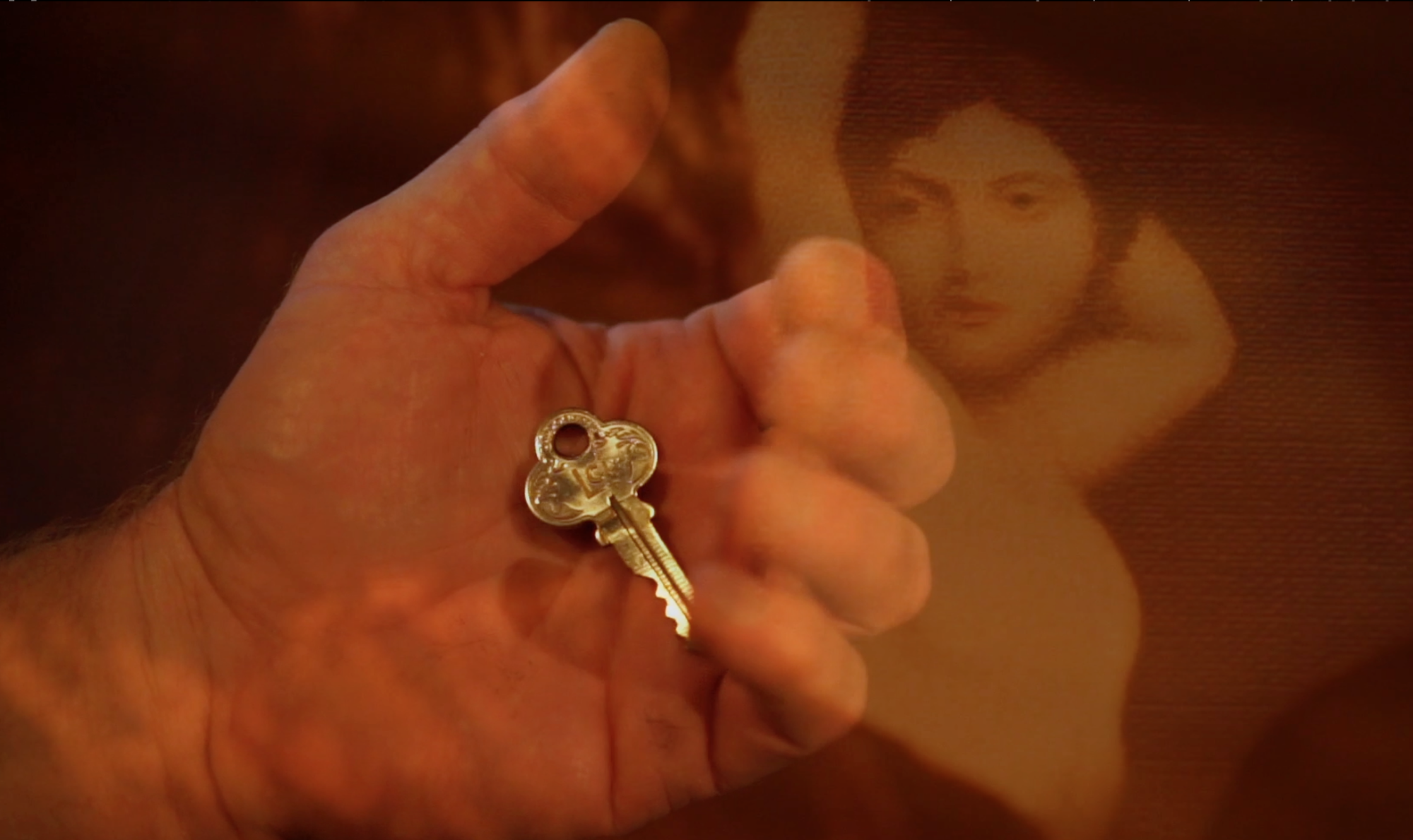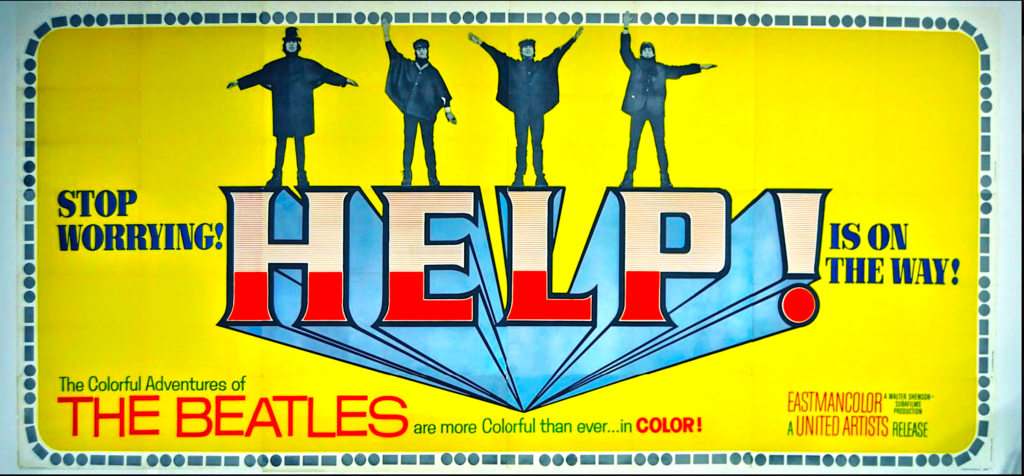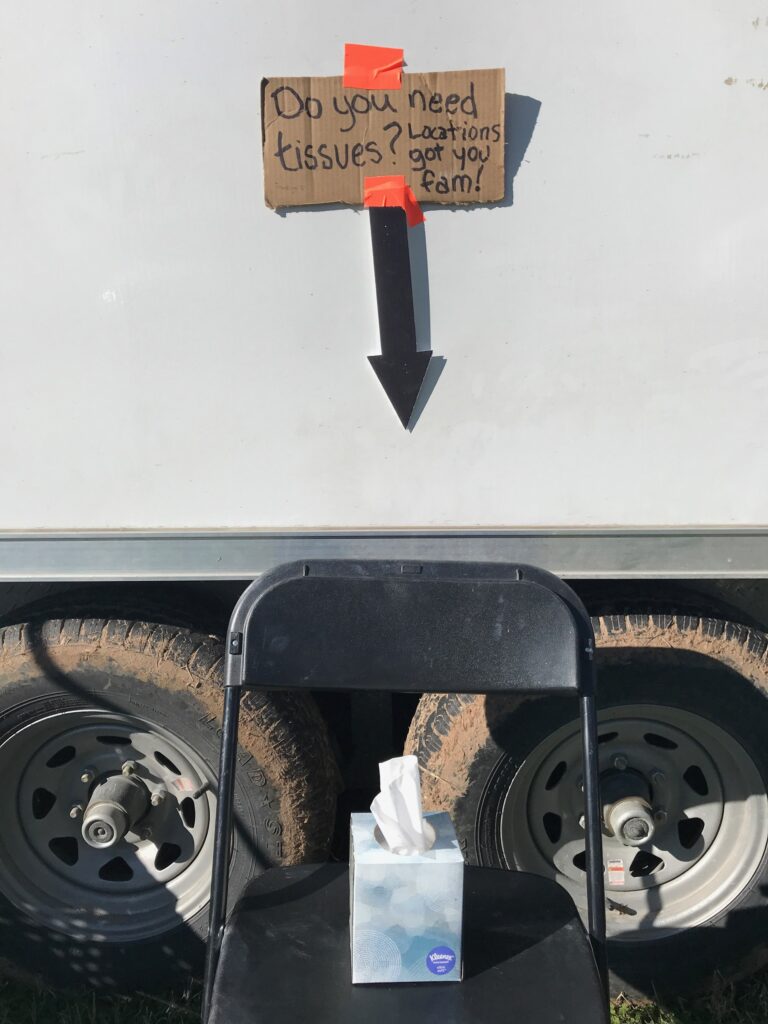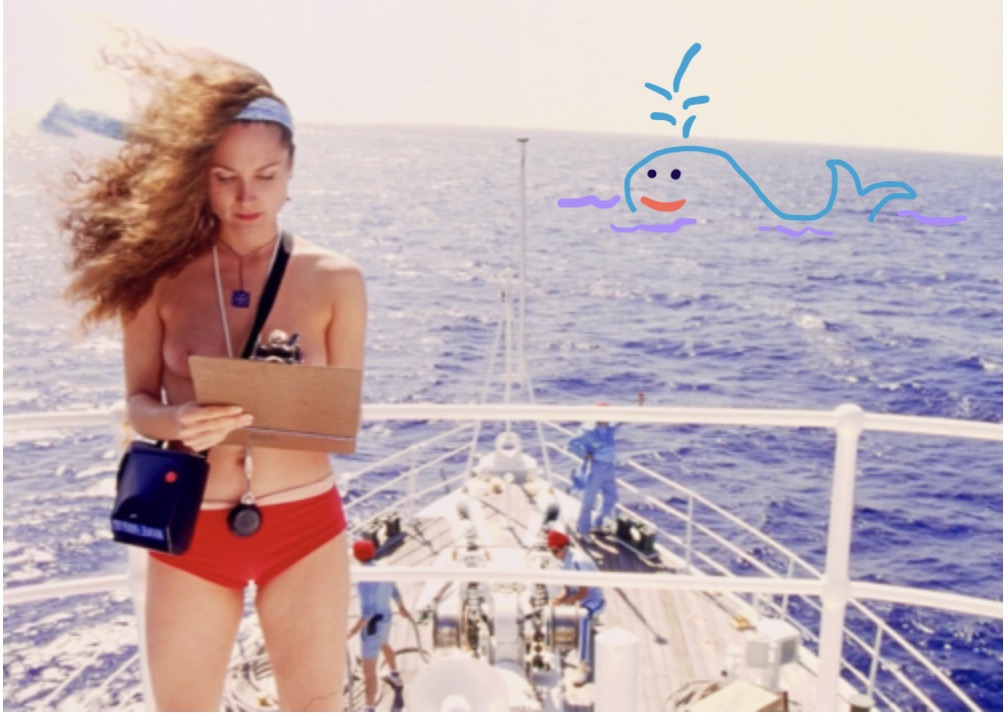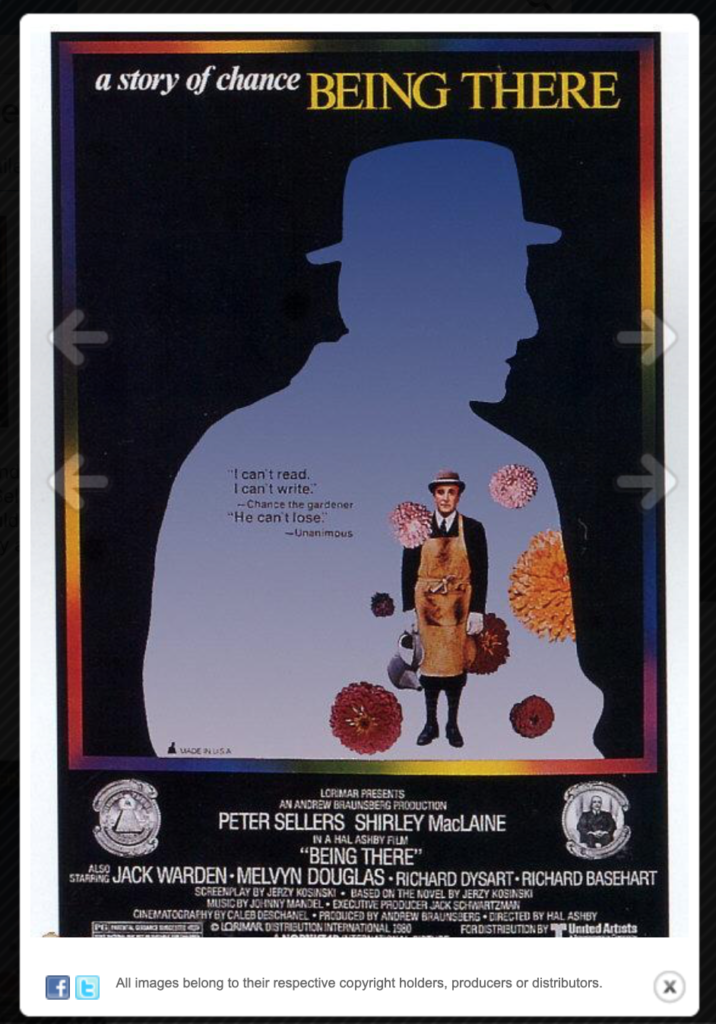2022 perspective –
Last night we watched an old film that was racist, sexist, homophobic, antisemitic, filled with hate speech and animal cruelty; elder abuse as a wheelchair bound man was lynched, and a person with cognitive and mental disability was chained and beaten. Women were objectified, and one of the main characters was constantly misgendered, called by a gendered name with which he did not identify. Indigenous peoples were mocked, Native American as well as Latinx, while the KKK and Nazis were featured toward the climax.
The previous 48 years perspective –
Last night we watched Blazing Saddles, and we laughed and laughed.
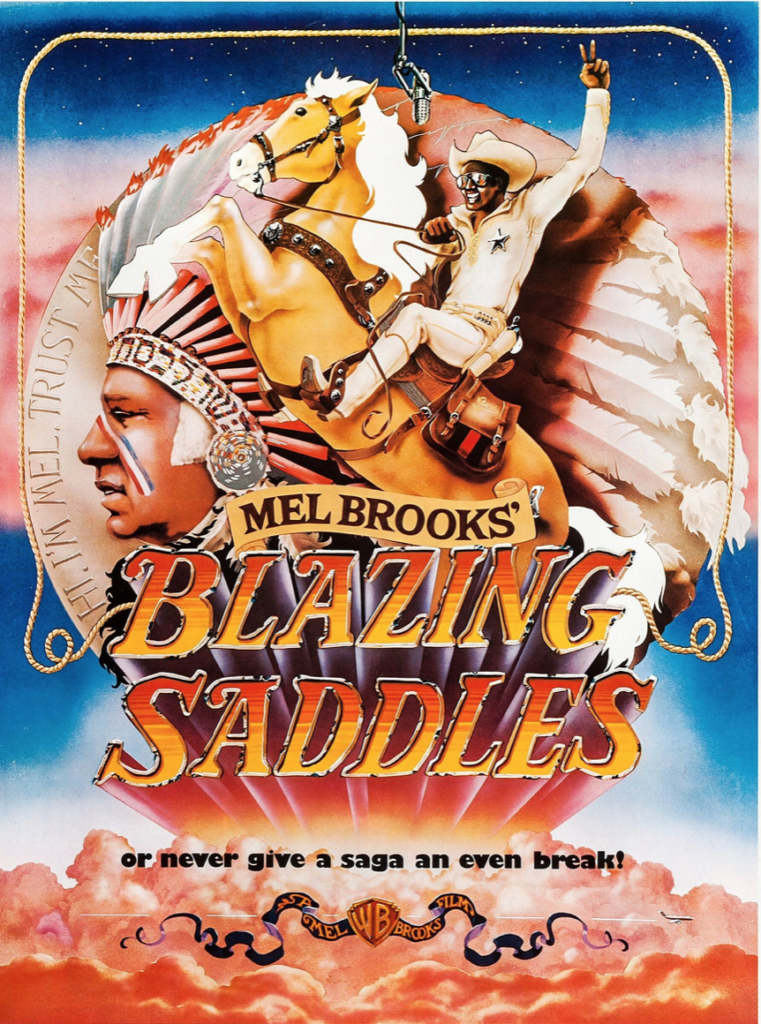
Was Mel Brooks attacked, cancelled, vilified, for his 1974 Western, or any of his projects, where he lovingly pokes fun at film, at everyone and their stereotypes? Was Richard Pryor, the black potty-mouthed comedian who co-wrote it?
To recap, black Bart (get it , Black Bart?), a sparkling “urbanite” works building the railroad and whacks his idiot boss in the head with a shovel, sending him to be hung. But a couple of executioners called in sick so they are running behind as a long line of people wait for their turn in the noose, including an old man in a wheelchair.
In a window above the gallows, the cross-eyed Governor, played by Mel Brooks, is really only interested in relations with his near naked secretary. His crooked District Attorney Hedy Lamarr (no that’s HEDLEY, HEDLEY Lamarr) devises a plan to get the people out of Rock Ridge, a town in the path of the railroad. They decide to send a black Sheriff, randomly seeing and thus saving Bart from his hanging, only to be killed by the criminals or the residents of the town , so they think.
Sharply dressed with Gucci saddlebags even, Bart rides into Rock Ridge. A welcoming reception becomes un-welcoming when they see the Sheriff is a you know what. At this point the word which shall not be written here has been ridiculously said a dozen plus times making us laugh at the speaker or their attitude, using humor to take the sting out of the word.
Bart takes on an alcoholic sharp shooting deputy, Jim, and tells him a childhood story of an Indian attack on their wagon train. The Chief, again Mel Brooks in full feathers and war paint, tells Bart’s family to go on, in Yiddish, because they are darker than the native people.
Bart gains the respect of the townspeople by protecting them from the goons sent in by Hedy (no that’s HEDLEY, HEDLEY Lamarr). Mongo, a gargantuan dumb brute, introduced to us after a few rounds of bean dinner farts round the campfire, reminiscent of being on set after chili lunch, is chained and beaten, seemingly unaffected by such treatment in his strength. The gang boss sends him to terrorize Rock Ridge.
As he wreaks havoc, Bart tricks him, captures him and also must chain him up in the jail, but releases him when a lawful order to do so comes in. But Mongo does not want to go back to the gang and instead stays to help.
Hedy ( No, Hedley blahdy blah) tries another approach, sending a torch singer Lili Von Shtupp, tired from whoring, into the town to perform and seduce Bart. Here’s another sprinkling of peeny and vv jokes, and Bart’s charm and other assets brings Lili to his side too.
Hedley and the Gang decide to flood the town with marauders and hold a casting call of baddies from throughout the world and across time. Mixed in with cowboy types are banditos that don’t need no badges, Nazis, and the KKK with “Have a Nice Day” on the back of their robes.
Bart gets his railroad building friends to come help the town build a booby trap for the gangs, in exchange for some land. At first the Mayor agrees to give land to the blacks and Chinese, but not the Irish. Anyway those guys fight beside the townspeople when a brawl ensues in the streets against the roughnecks. Mongo even punches a bad guy’s horse, knocking it out in pure stuntmanship. The camera cranes up up up to reveal the big battle is on the back lot of a Hollywood studio.
The brawl rolls over into a soundstage filming an elaborate musical number with dozens of tuxedo clad gay men dancing down a cascade of steps. They join in the fray (“c’mon girls”), and jokes are made with synchronized swimming, and a cowboy joining their team.
The brawl rolls further into the commissary with a blend of actors taking lunch in their costumes, including a guy dressed as Hitler. A pie fight ensues, but ultimately the film ends with Bart and Jim taking to a trail on horseback, meeting up with a limo, dismounting the horses for a wrangler, and riding the limo out into the sunset, presumably all the way to the bank.
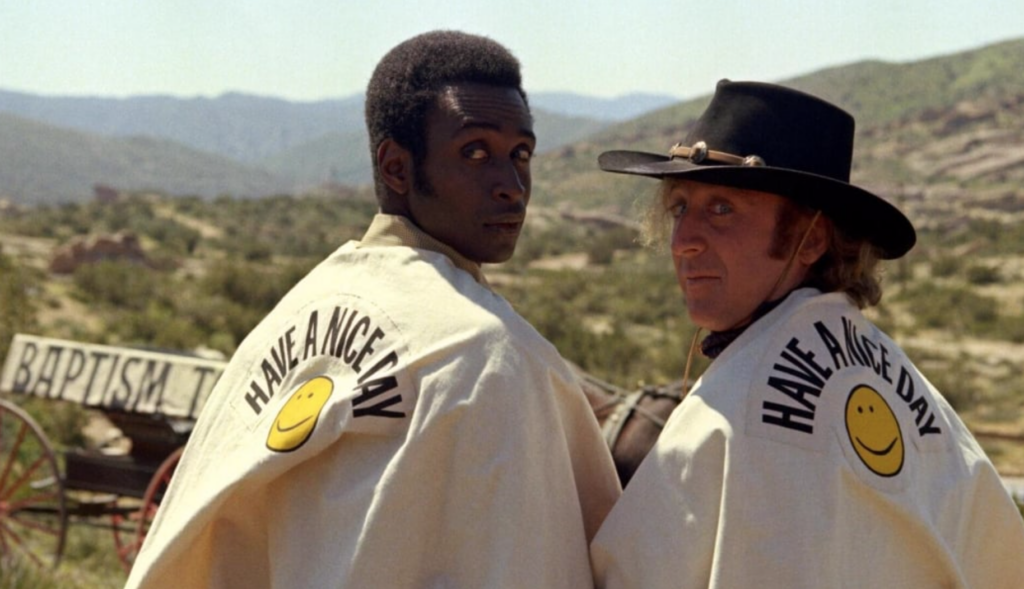
A little levity used to go a long way in reminding a generation we can or have outgrown certain ideologies and labels by seeing the ridiculous side, instead of replacing them with more divisive ones.
